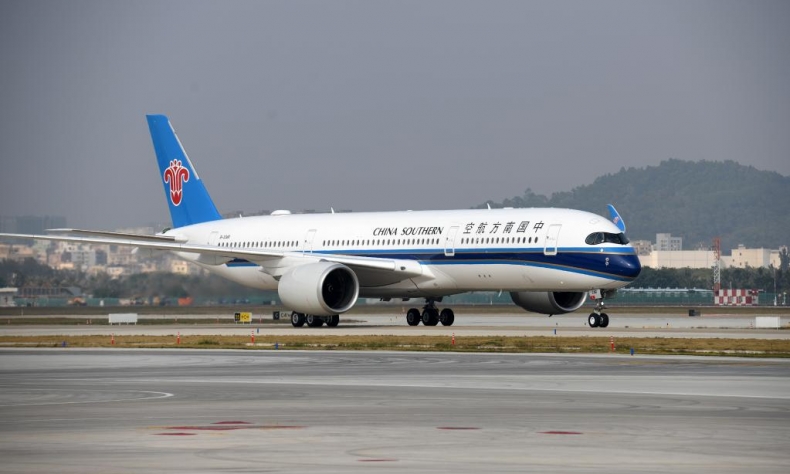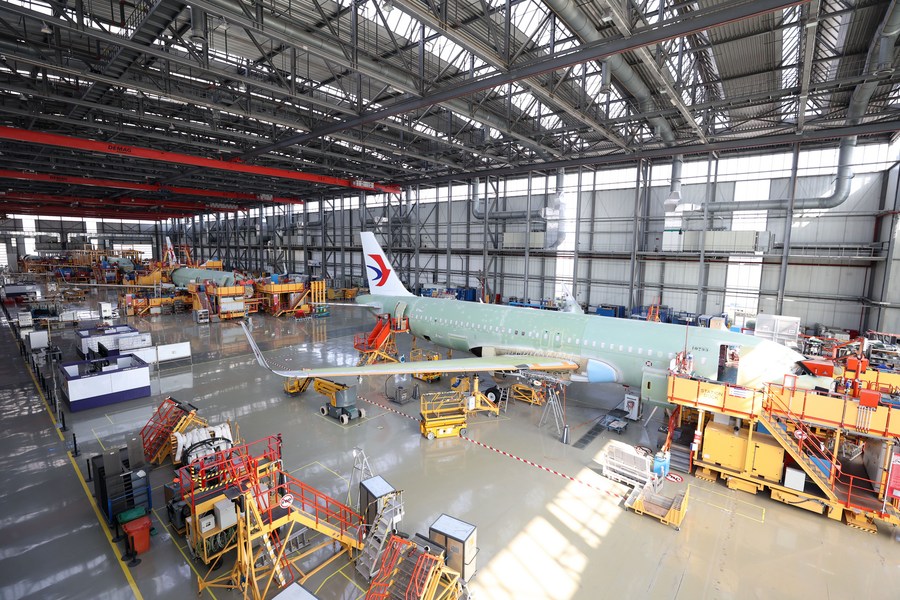Airbus Deals a Testament to Positive Prospects of Chinese Market

In the current world, there are many political pressures pushing for ‘deglobalization,’ pursuing protectionism, trade barriers, or the erection of market exclusion mechanisms. However, none of these measures will stand to make a country more prosperous.
It goes without saying that China has the world’s single largest aviation market. With 1.4 billion people, and a land mass that puts it as the world’s third-largest country, the demand for aircraft and aviation-related services is unprecedented.
While China is steaming ahead in developing its own domestically produced carriers, such as the newly certified C919 aircraft produced by the Commercial Aircraft Corp of China (COMAC), the scope of demand nonetheless means big business is still up for grabs for the world’s largest aircraft producers, namely Boeing and Airbus. This is in spite of enormous disruptions to the global aviation market caused by the COVID-19 pandemic.
It was recently announced that China had signed a $37 billion deal with Airbus in the view to procuring 292 A320 passenger jets, constituting what Business Insider described as “one of the largest single-day deals in aviation history.”
The biggest single takeaway from this deal is the fact that China’s domestic market continues to offer unparalleled benefits to the rest of the world. This makes China’s market, and sustained access to it, a continuing engine and anchor of global growth, irrespective of the uncertainties that plague the world today.
China’s growth and opportunities have not reached their peak, and, in the specific case of Airbus, it demonstrates that continued economic ties between China and Europe are critical to the latter’s prosperity.

In recent months, mainstream media coverage has been awash with negativity concerning the prospects of China’s economy. However, recent data shows its economy has weathered recent economic headwinds and is likely to keep growing.
That means that China not only holds the world’s single largest consumer market but also has great potential in terms of growth and what it can offer exporters.
Logically, this should make China a critical aspect of the growth strategy for any brand or business. This is precisely why so many countries are seeking to negotiate free trade agreements with China, with recent talks including China and the Gulf Cooperation Council (Kuwait, Saudi Arabia, the UAE, Qatar, and Oman), and Uruguay and Ecuador, among others, as well as its application to join the CPTPP region-wide trade agreement.
This deal also shows that the Chinese market critically supports jobs in other countries. The so-called rhetoric regarding “taking jobs away” is obviously false.
In Europe, Airbus employs over 126,495 people and is a critical source of European manufacturing jobs and local supply chains. Bonanza orders such as the recent deal with China strive to support job opportunities, especially when the aviation industry has faced a massive slump in manufacturing demand owing to the impact of the pandemic.
The latest deal stands as a testament to the positive prospects of the Chinese market. As Michel Tran Van, chief operating officer of Airbus China, said, “We will stay in China. This is a single-country market that is growing the fastest in the long-term.”
In the current world, there are many political pressures pushing for “deglobalization,” pursuing protectionism, trade barriers, or the erection of market exclusion mechanisms. However, none of these measures will stand to make a country more prosperous.
Given this outlook, it would be the wise and prudent choice of countries around the world to intensify their economic engagement and continue to pursue integration. The Airbus deal is an example of what can be achieved when things are done right and is the epitome of what “win-win” cooperation looks like.
 Facebook
Facebook
 Twitter
Twitter
 Linkedin
Linkedin
 Google +
Google +







